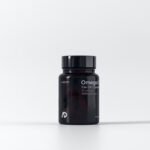Pregnancy is a remarkable journey marked by anticipation and joy, but it’s not uncommon for expectant mothers to have concerns about how various aspects of their health may impact the well-being of their unborn child.
Here, we address three common worries during pregnancy and provide guidance based on expert advice.
1) Asthma Management: Can I Use My Inhalers During Pregnancy?
For asthmatic mothers-to-be, managing asthma is a critical aspect of ensuring a healthy pregnancy. The consensus among healthcare professionals is clear: it’s crucial to continue using inhalers during pregnancy. The risks associated with uncontrolled asthma, such as insufficient oxygen reaching the baby, outweigh any potential risks from asthma medication.
In addition to medication, controlling asthma involves identifying and minimizing triggers. Common triggers include pet fur and dust mites. Expectant mothers with asthma are advised to use air filters, vacuum frequently, damp dust, and employ protective covers on bedding.
Although some women experience a reduction in the severity of asthma during pregnancy, any noticeable increase in wheeziness should prompt a discussion with a healthcare provider for a medication review.
2) Homeopathy: Efficacy and Safety During Pregnancy
Homeopathy, a form of therapy based on treating ailments with substances that produce similar symptoms, is a subject of ongoing debate. While some individuals report positive experiences, scientific opinion suggests insufficient evidence to support its efficacy beyond a placebo effect.
Expectant mothers considering homeopathic treatments should consult their healthcare provider before use, as safety during pregnancy remains a concern. Although some certified homeopaths may offer treatment with a doctor’s approval, it’s crucial to prioritize evidence-based medical practices to ensure the well-being of both mother and baby.
3) Herbal Remedies and Teas: Navigating the Unknown
The use of herbal remedies and teas during pregnancy raises questions due to the limited regulation of herbs and dietary supplements by the Food and Drug Administration. The lack of extensive research on the effects of many herbs on pregnant women necessitates caution.
Experts recommend avoiding herbal products and teas during pregnancy, opting instead for decaffeinated black teas. If craving a fruit or ginger tea, careful scrutiny of the ingredient label is essential to ensure the absence of potentially harmful herbs. Prior to using any herbal remedy, it’s advisable to consult with a healthcare professional for personalized guidance.
In conclusion, addressing common worries during pregnancy involves informed decision-making and open communication with healthcare providers. While the journey may be accompanied by uncertainties, seeking guidance from medical experts ensures the well-being of both mother and baby, fostering a safe and healthy pregnancy experience.
Always consult with your healthcare provider for personalized advice tailored to your individual health needs during pregnancy.



